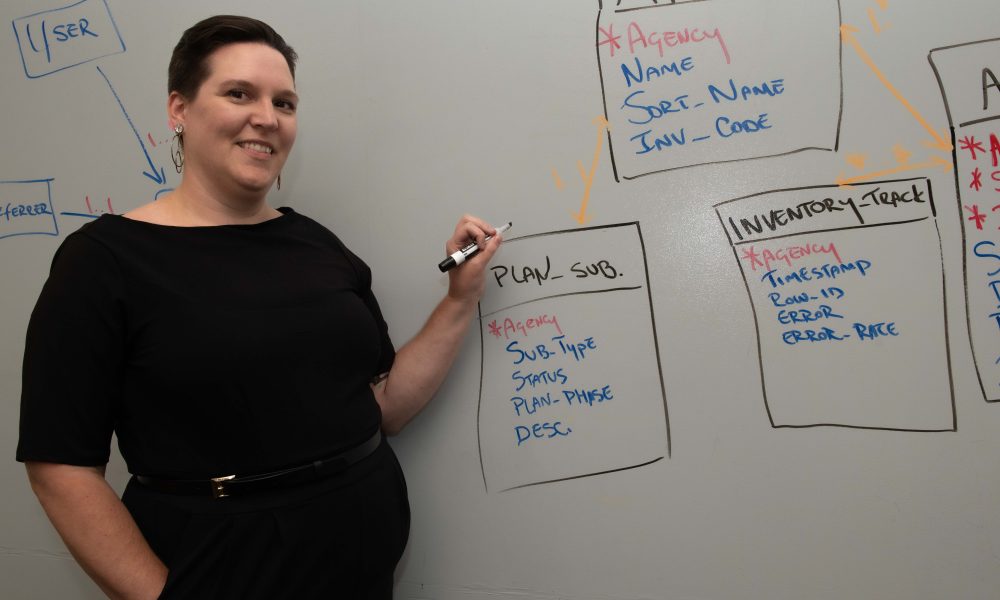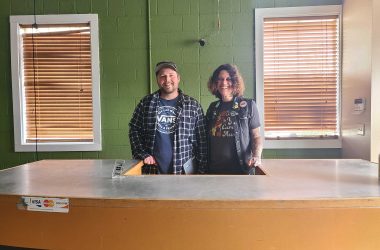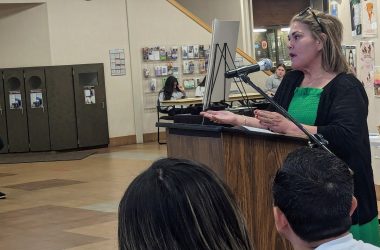Long before she started working with state databases about cow manure, Kathryn Darnall Helms was focused on human rights.
The two fields might seem wildly divergent, but as Oregon’s first chief data officer, Darnall Helms works with information on nearly every topic state government touches.
She helps state agencies gather better information, used to determine how they can better serve the public. It’s a job that can seem abstract, but Darnall Helms sees it as core to holding government accountable to Oregonians.
“It shouldn’t be hard to engage with government. It shouldn’t be hard to receive services,” she said.
Many of her peers coordinating data for large corporations or governments came to the field from tech. Darnall Helms instead started as a librarian, working on databases that documented human rights abuses and the testimony of people experiencing state violence.
“Much of that focus was about how records, and specifically in my work, governmental records, really give us that opportunity to speak truth to power and to hold government accountable,” she said. “So how do you have evidence that a human rights abuse took place that were sponsored by the government? Well, you look at what records may exist to articulate that story that’s being told.”
She later shifted to government work, managing open data programs for the city of Austin. There, her focus was on proactive disclosure — seeing what information members of the public regularly asked the city for and finding ways to make it available without people having to file requests for records.
Darnall Helms did her undergraduate work at the University of Oregon and married an Oregonian.
“If you take them out of the state, eventually you’re told you need to bring them back,” she said. She was looking for jobs in the state soon after the Oregon Legislature in 2017 passed the bill creating the chief data officer role. She applied and got the appointment, beginning work in January 2019.
Darnall Helms was recognized earlier this year as one of the country’s leading data executives by Chief Data Officer Magazine.
Her day-to-day work is focused on building Oregon’s open data program and executing the state’s data strategy, which she published in 2021. It calls for the state to have consistency in how data is collected and stored, and clear standards and quality requirements so data can be shared and used to make informed decisions.
In practice, that could mean helping a state agency with a new requirement from the legislature to create an app, or helping the agency’s workers publish data on the state’s open data portal.
“We deal with everything from fish and birds and plant life and flora and fauna, to people services, to tax rebates, to administer dozens and dozens and hundreds of programs throughout the state,” Darnall Helms said. “You’ve got 66 executive branch agencies, they all do something different with data where they all have different goals and outcomes that they’re trying to drive towards. And so my role is also there to help support them using data to meet those objectives.”
Part of her role means seeing the variety of information the state collects — like the Department of Agriculture’s database of every bovine manure producer granted a tax credit for creating biofuels.
But her role goes beyond collecting or publishing data. Darnall Helms ultimately wants to use information the state gathers to improve the work they do on behalf of the public.
She cited a recent effort by the Department of Motor Vehicles to modernize their services, in part by talking to customers about what their experience getting DMV services was like and looking for places to improve.
Darnall Helms would like to see every agency in Oregon inventory the data they collect — often a first step toward making service better for Oregonians.
“Now that they have these inventories, they’ve been able to figure out, oh, we’re collecting duplicate information here, or we in this other agency are collecting the same information. Why are we asking for it twice?” she said.
In the next five years, Darnall Helms said she hopes to see more agencies using data to focus on what they achieved for Oregonians.
“That means not only, ‘How many people do we help this year?’ or ‘How many people receive services?’ but what was the ultimate outcome for those folks?” she said. “Did they ultimately see improvement in the outcomes in their life?”
Contact reporter Rachel Alexander: [email protected] or 503-575-1241.
JUST THE FACTS, FOR SALEM – We report on your community with care and depth, fairness and accuracy. Get local news that matters to you. Subscribe to Salem Reporter. Click I want to subscribe!

Rachel Alexander is Salem Reporter’s managing editor. She joined Salem Reporter when it was founded in 2018 and covers city news, education, nonprofits and a little bit of everything else. She’s been a journalist in Oregon and Washington for a decade. Outside of work, she’s a skater and board member with Salem’s Cherry City Roller Derby and can often be found with her nose buried in a book.









